eBooks
•
7 MIN READ
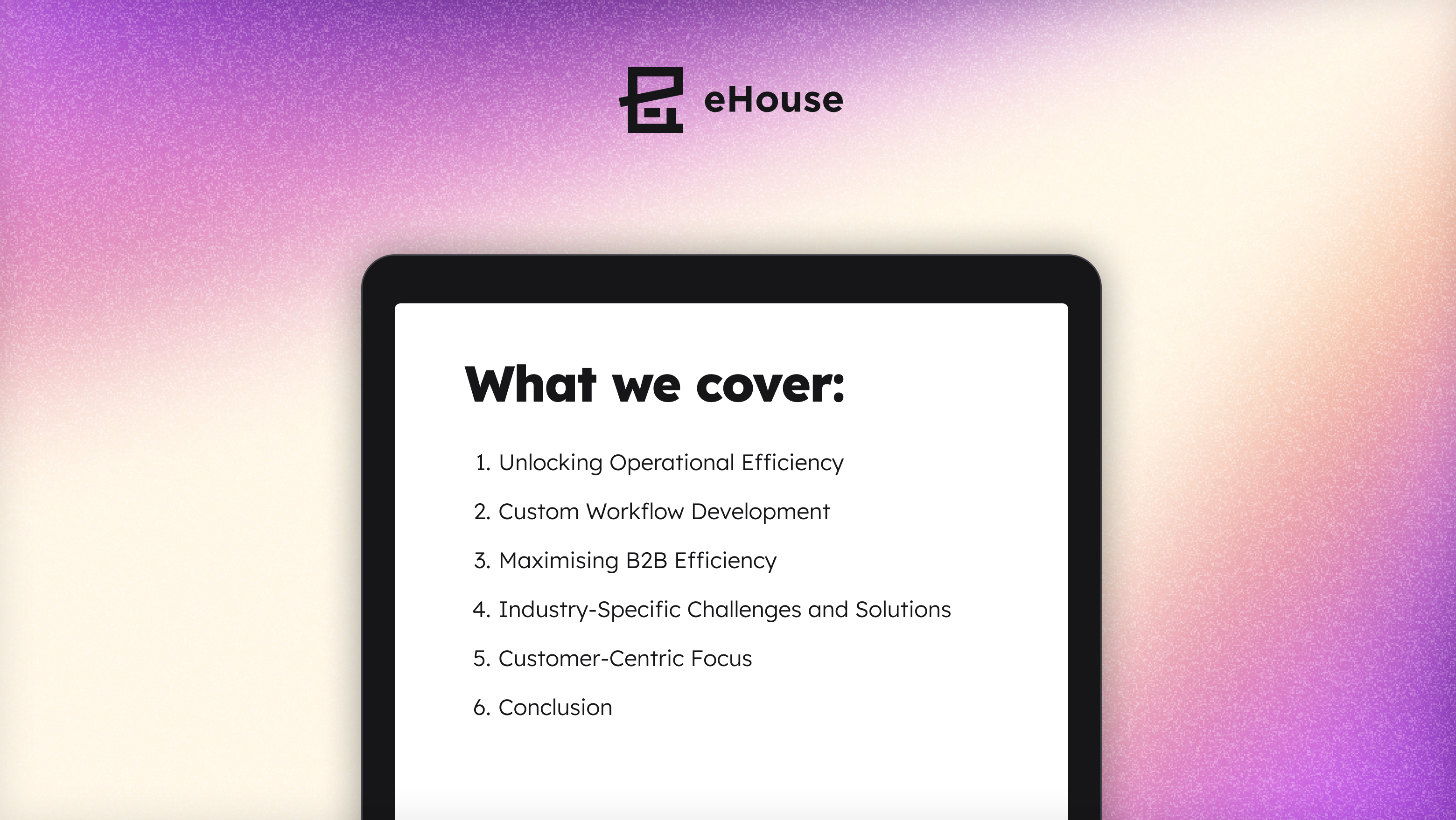
Shopify B2B caters to Merchants selling products or services to other businesses in bulk quantities. Today, B2B eCommerce is the fastest-growing type of eCommerce merchant. It’s essential for manufacturers, distributors, and wholesalers looking to streamline their ordering processes, offer custom pricing, and manage accounts for trade customers efficiently. There are many ways to handle B2B from a platform perspective, but from a data integration standpoint, eHouse finds Shopify’s B2B capabilities are important because they empower merchants to create dedicated wholesale storefronts, implement complex pricing structures, and allows agile and scalable integration with backend systems like ERP (Enterprise Resource Planning) or CRM (Customer Relationship Management).
eHouse has numerous customers leveraging Shopify B2B alongside our agile and scalable connectors to integrate with various applications in their tech stack. This case study will highlight key themes of our customers’ integration strategies on Shopify B2B, showcasing custom workflow development across multiple channels, process optimization, and streamlining, as well as addressing industry- specific challenges. eHouse has successfully executed solutions to enable operational efficiency and faster scaling in competitive wholesale markets for these customers.
Today, B2B eCommerce is the fastest-growing type of eCommerce merchant. It’s essential for manufacturers, distributors, and wholesalers looking to streamline their ordering processes, offer custom pricing, and manage accounts for trade customers efficient.
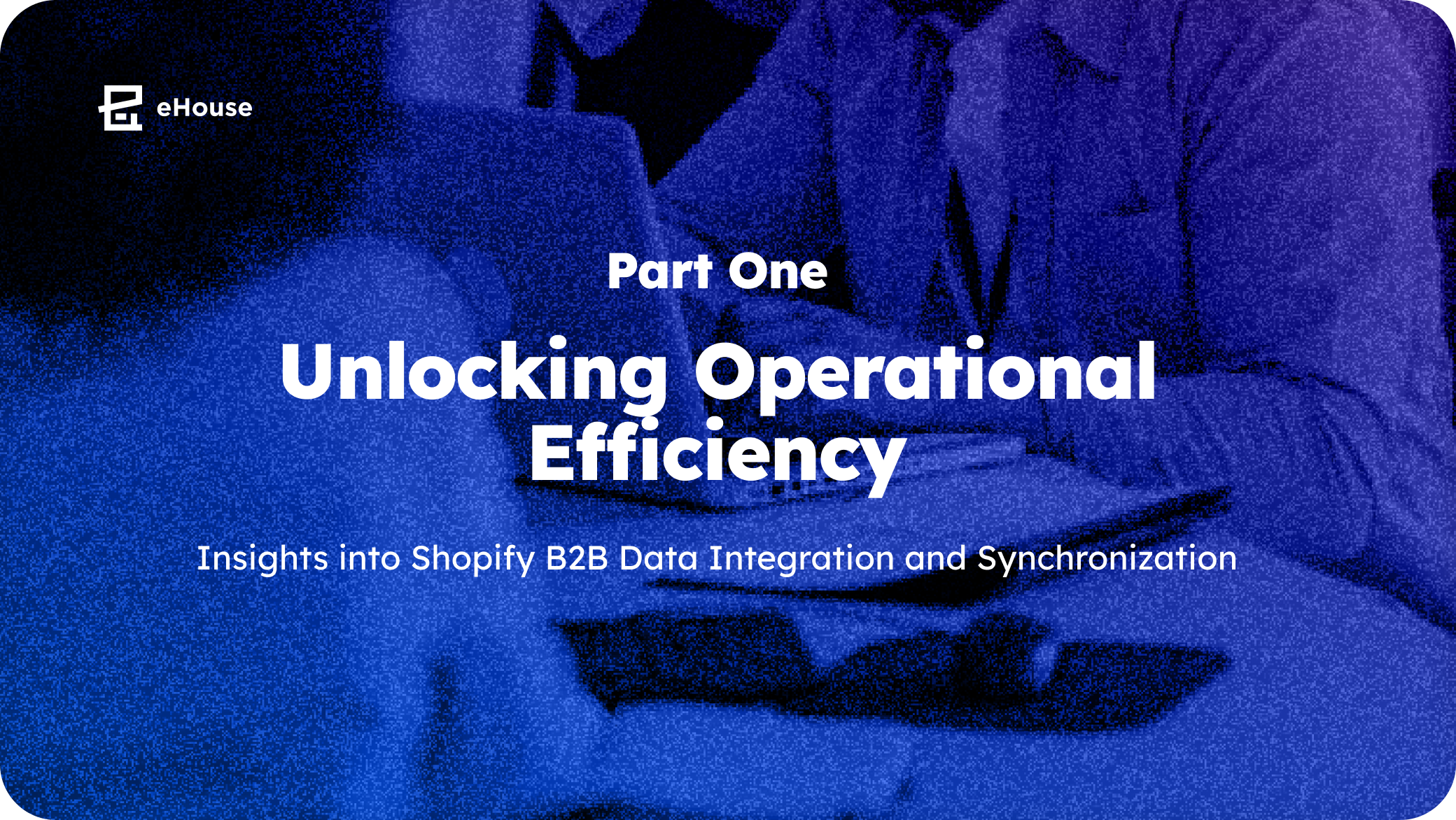
Several of our customers use Shopify B2B as their preferred eCommerce platform, including:
Efficient data synchronization between Shopify SFTP, and ERPs like SAP ECC, Microsoft Dynamics 365 Business Central, and Blue Link ERP, is vital for seamless operations.
To achieve this level of integration and synchronization efficiently, Merchants like our specialty chemical distributor benefit from using eHouse's integration services by leveraging XML idoc formats for GSAP integration, exporting Shopify orders to SFTP with specific field mappings and conditions, such as identifying "dealer orders" based on GSAP values. They also rely on synchronizing inventory updates and order fulfillments between Shopify and SFTP to maintain accurate inventory levels and order processing.
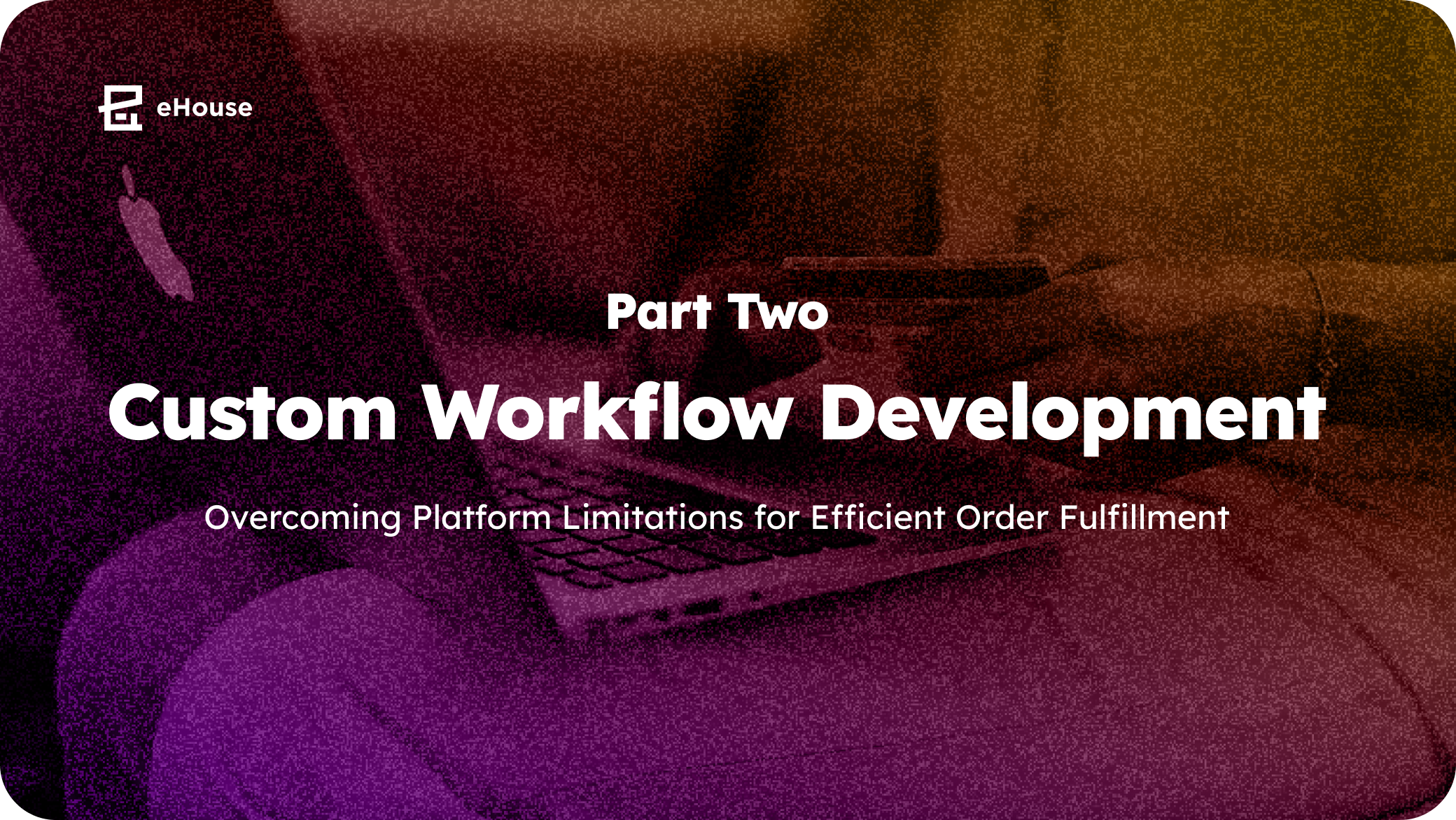
Even with enhanced capabilities for B2B on Shopify, many Merchants face challenges due to limitations in native eCommerce platforms. For example, eHouse's customer who distributes dental supplies is one such Merchant that needed the development of custom bundling solutions to address complexities in order processing and fulillment with Shopify. A standout feature of this solution is the efficient management of bundled items as a single SKY, addressing Shopify's limitations, particularly in handling bundled item orders with discounts.
Here are some key workflows that eHouse implemented for this Merchant. They needed their Shopify B2B store to be integrated with their ERP, Microsoft Dynamics 365 Business Central.
eHouse provided our customer with an integration solution that enabled them to continue to operate according to their own business rules that specifically apply to their B2B operations, rather than trying to fit themselves into a predetermined integration box or working within the naive platform's limitations.
By implementing this Merchant-tailored solution, our dental supply distributor was able to optimize their operations according to their specific needs and workflow, ensuring seamless B2B transactions. This approach highlights the importance of flexible integration solutions that adapt to individual business requirements rather than imposing rigid structures.
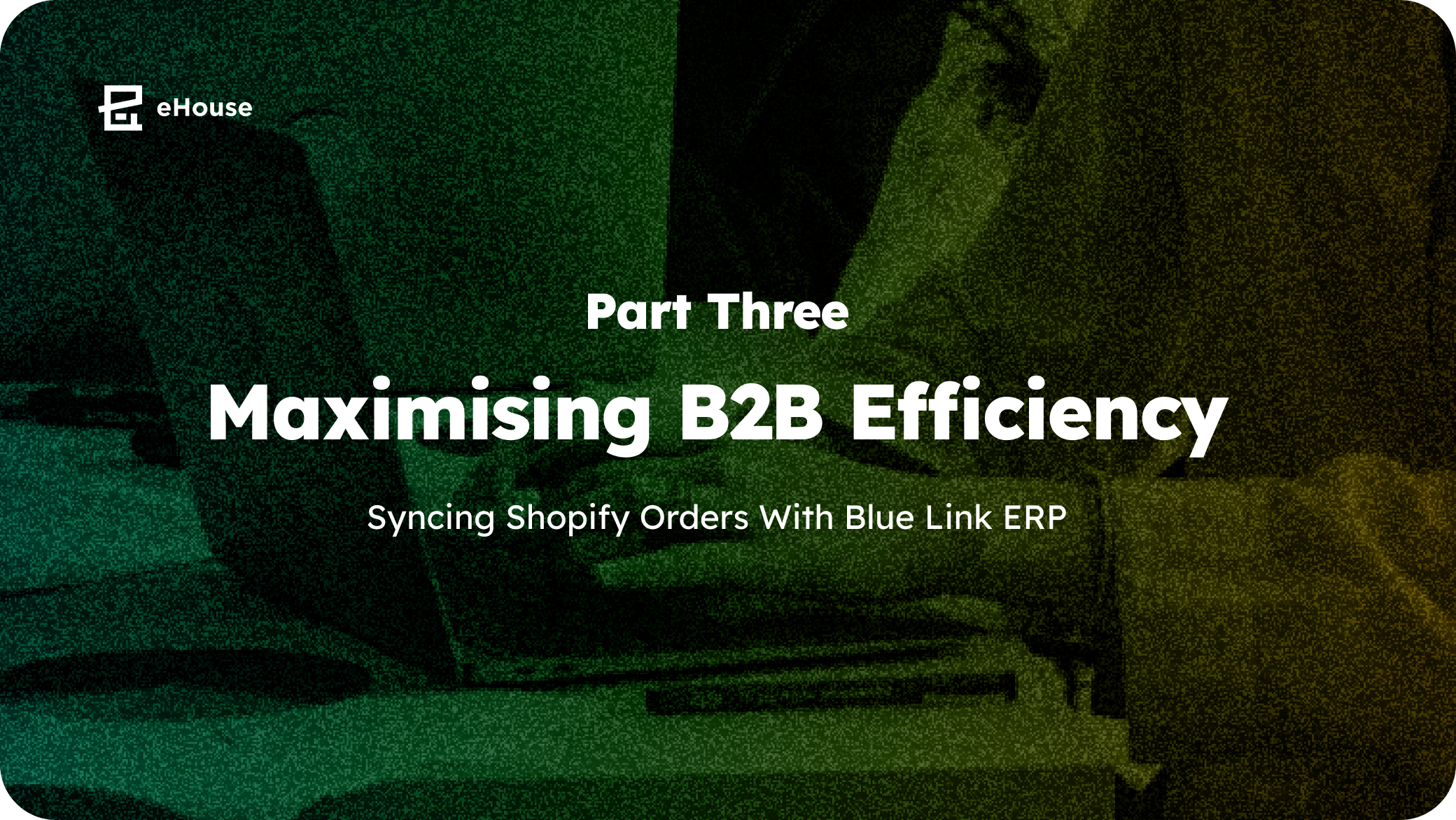
Kid Central employs Shopify for B2B operations with eHouse facilitating the integration of orders from these eCommerce platforms into their chosen ERP system, Blue Link ERP. Their integrations enable the synchronization of data between Blue Link ERP and Shopify.
eHouse's comprehensive approach encompasses both the initial setup and ongoing updates of customer and company data to ensure accuracy and consistency across their two eCommerce platforms and Blue Link ERP system.

PART FOUR
Each industry faces unique challenges related to eCommerce integration, such as complex order handling or multi-location inventory management. Strategically-managed integrations address these challenges to meet industry-specific needs and improve overall business operations.
These integrated workflows and processes emphasize the significance of effective data synchronization solutions and streamlined operations to enhance order management, fulfillment tracking, and inventory synchronization across different industries utilizing Shopify B2B. Each company's approach reflects tailored strategies to overcome industry-specific challenges and optimize scalability for improved customer satisfaction and operational efficiency.
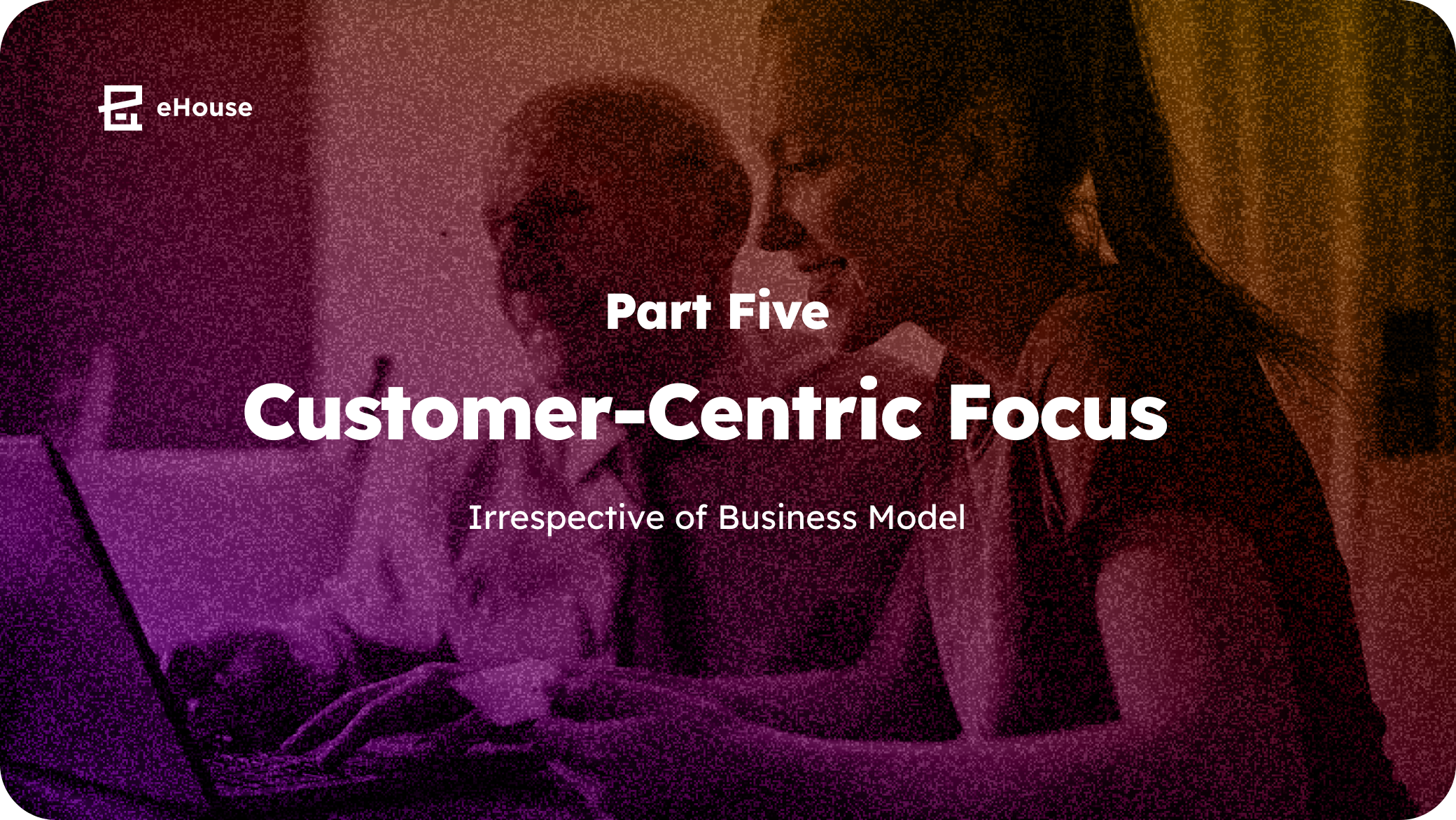
Whether the merchant operates in B2B, B2C, or both realms, consistency in customer experience remains paramount.
eHouse's B2B Merchants implement integration strategies, like scheduled intervals and procedures, to maintain continuous data synchronization. This ensures that inventory, pricing, and product information are updated dynamically and flow daily. These strategies guarantee that merchants using Shopify as their B2B eCommerce platform can show real-time inventory levels, pricing, and product details. By adopting continuous data syncrhonization through integration with eHouse, our customers streamline operational workflows and enhance their customers' experiences.
Through our managed data integration services, our Shopify B2B merchants, spanning various industries such as specialty chemicals, dental supplies, beauty products, and baby/maternity items, can focus on enhancing and maintaining customer expectations while delivering a seamless brand experience. Whether the merchant operates in B2B, B2C, or both realms, consistency in customer experience remains paramount. Customers maintain their shopping habits and behaviors regardless of the brand they choose to purchase from, underscoring the importance of maintaining a uniform experience across all touchpoints.
In today's competitive landscape, shaped by high expectations set by companies like Amazon, customers prioritize functionality throughout their brand interactions and quickly notice any deviations from their expected experience. Regardless of whether it's B2B or B2C, the customer experience reigns supreme, and it starts with a well-organized backend. There are no second chances to win a customer over just because it's B2B; the customer experience remains paramount.
Shopify B2B is emerging as a competent and feature-rich platform empowering merchants to establish dedicated wholesale storefronts, implement intricate pricing models, and seamlessly integrate with managed services like eHouse into backend applications like ERPs, 3PLs, and return platforms.
As more and more merchants need omnichannel and multichannel integrations commerce capabilities, eHouse recognizes the significance of facilitated numerous successful integrations with Shopify B2B for a diverse range of customers; we know first hand the transformative impact of custome workflow development, process optimization, and industry-specific solutions.
By enabling operational efficiency and facilitating rapid scalability, eHouse has helped our customers navigate and thrive in competitive wholesale markets.
Looking ahead, eHouse remains committed to supporting merchants in harnessing the full potential of Shopify B2B, empowering them to unlock new opportunities, drive growth, and deliver exceptional customer experiences.
Start maximizing the potential of Shopify B2B for your business today. Take the next step and schedule a consultation today!
Have an idea for a project? Fill out this form and we’ll get back to you shortly.